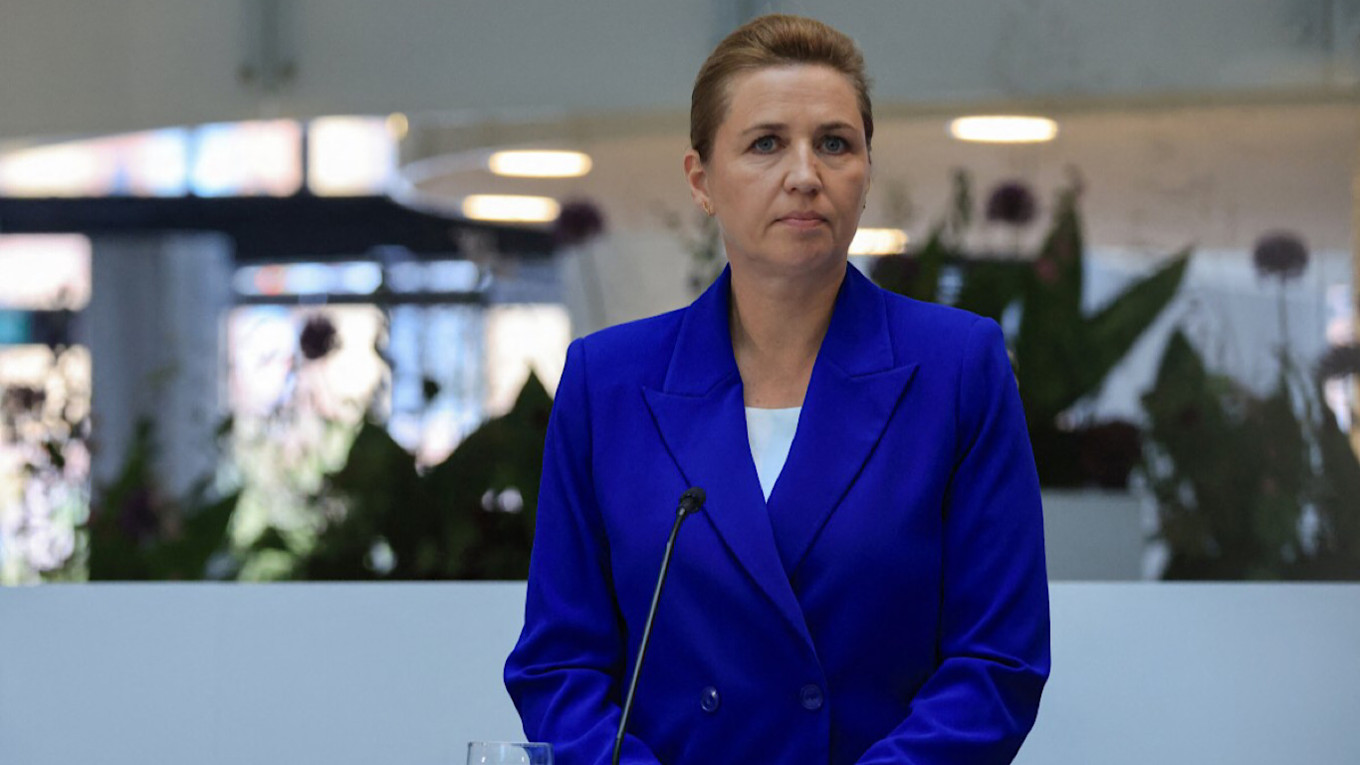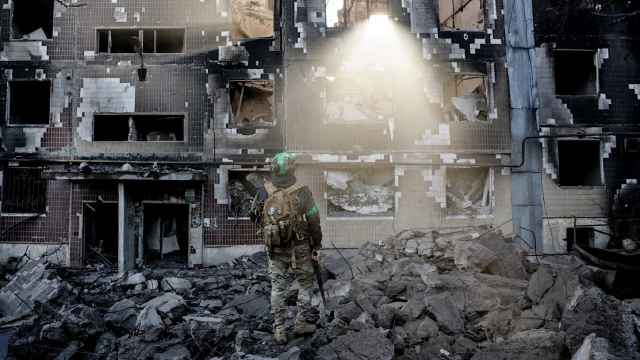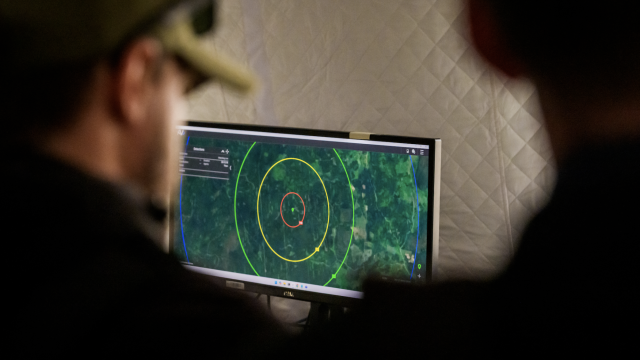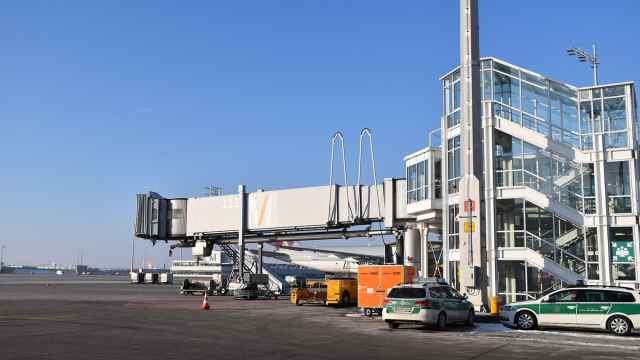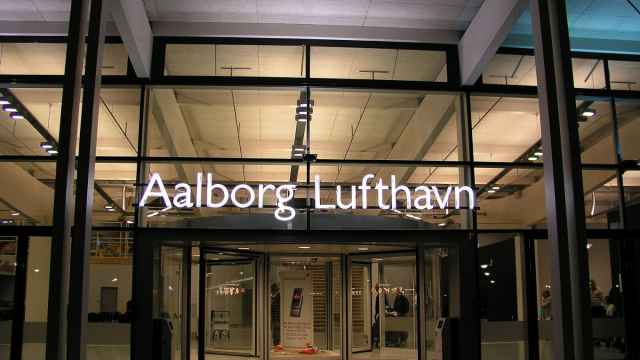Danish premier Mette Frederiksen on Wednesday urged Europe to step up its response to Russia's "hybrid war," as she hosted EU leaders for defense talks held under tight security following mystery drone flights.
Thousands of police were on alert, civilian drones banned and reinforcements deployed from NATO allies to help protect the summit at the grand Christiansborg Palace in Copenhagen.
"I hope that everybody recognizes now that there is a hybrid war," Frederiksen said.
Denmark — which holds the EU's rotating presidency — has been rattled in recent days as unidentified drones shut down airports and flew near military sites.
Suspicions have pointed at Russia — but so far no culprit has been definitively named.
Nonetheless the drone incidents have sharpened the focus on chinks in Europe's defenses, after high-profile air incursions by Moscow in Poland and Estonia.
"We face the greatest security challenge since the end of the Second World War," Frederiksen said.
EU leaders in the Danish capital were pressing to flesh out details for priority defense projects, including a "drone wall" aimed at countering Russia's threat.
"It's a pattern, and this pattern is coming from Russia," European Commission chief Ursula von der Leyen told reporters.
"Russia tries to test us, but Russia also tries to sow division and anxiety in our societies. We will not let this happen."
The EU says it wants to build a system of defenses to detect, and ultimately take down, drones.
The bloc is looking to tap the war-tested expertise of Ukraine, whose President Volodymyr Zelensky will join for a broader gathering of European leaders on Thursday.
Wednesday's discussion was the latest step in the EU's efforts to get ready for a potential conflict with Russia by 2030 — as warnings swirl Moscow could look to attack in the coming years.
"We are in a confrontation with Russia," French President Emmanuel Macron said, pointing at Moscow's disinformation campaigns, cyber attacks and airspace violations.
The 27-nation bloc has already come up with a 150-billion-euro loan scheme to help fund defense spending, with the lion's share being snapped up by eastern countries.
Brussels has proposed countries now club together on four "flagship" projects — the drone wall, securing the eastern flank, missile defenses and a space "shield."
Tapping Russian frozen assets?
But while the EU looks to prepare for a possible future war, a crucial pressing issue is how to help finance Ukraine as it tackles Moscow's ongoing invasion.
Leaders were picking over a proposal from Brussels to use frozen Russian central bank assets to fund a new 140-billion-euro loan for Kyiv.
"Russia is causing tremendous damage in Ukraine right now, and it is not right that anybody else should pay for it other than Russia," said EU foreign policy chief Kaja Kallas.
As U.S. support for Ukraine has dried up under Trump, the plan last week won the backing of a key powerbroker, German Chancellor Friedrich Merz.
But some countries remain sceptical, despite insistence from others that it is crucial to help Kyiv plug looming budget shortfalls.
Luxembourg's Prime Minister Luc Frieden said the plan raised a "whole series of questions, and I would like to have answers to those first."
"All proposals are welcome, but we must first ensure that they work in practice," he said.
Beyond the push to keep Ukraine going financially, officials are also trying to keep Kyiv's bid to join the EU on track despite a block from Hungarian leader Viktor Orban.
European Council chief Antonio Costa, who chairs the summit, has been canvassing support for a plan that would mean countries cannot veto each new step of talks.
But Orban appeared to pour cold water on the project as he gave a firm "no" when asked if Ukraine had any prospects of joining the bloc.
A Message from The Moscow Times:
Dear readers,
We are facing unprecedented challenges. Russia's Prosecutor General's Office has designated The Moscow Times as an "undesirable" organization, criminalizing our work and putting our staff at risk of prosecution. This follows our earlier unjust labeling as a "foreign agent."
These actions are direct attempts to silence independent journalism in Russia. The authorities claim our work "discredits the decisions of the Russian leadership." We see things differently: we strive to provide accurate, unbiased reporting on Russia.
We, the journalists of The Moscow Times, refuse to be silenced. But to continue our work, we need your help.
Your support, no matter how small, makes a world of difference. If you can, please support us monthly starting from just $2. It's quick to set up, and every contribution makes a significant impact.
By supporting The Moscow Times, you're defending open, independent journalism in the face of repression. Thank you for standing with us.
Remind me later.


